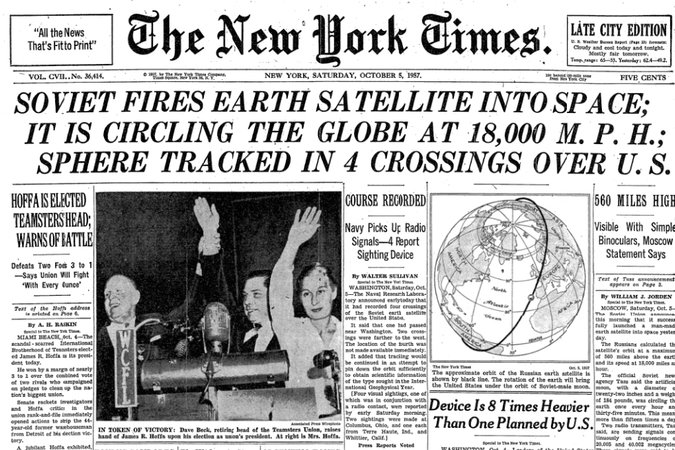Today is the 60th anniversary of the day that the Soviet Union announced that it had launched a satellite — Sputnik — in earth orbit. The conventional historical narrative (as recounted, for example, in my book and in Katie Hafner and Matthew Lyon’s history) is that this event really alarmed the American public, not least because it suggested that the Soviet Union might be superior to the US in important fields like rocketry and ballistic missiles. The narrative goes on to recount that the shock resulted in a major shake-up in the US government which — among other things — led to the setting up of ARPA — the Advanced Research Projects Agency — in the Pentagon. This was the organisation which funded the development of ARPANET, the packet-switched network that was the precursor of the Internet.
The narrative is accurate in that Sputnik clearly provided the impetus for a drive to produce a massive increase in US capability in science, aerospace technology and computing. But the declassification of a trove of hitherto-secret CIA documents (for example, this one) to mark the anniversary suggests that the CIA was pretty well-informed about Soviet capabilities and intentions and that the launch of a satellite was expected, though nobody could guess at the timing. So President Eisenhower and the US government were not as shocked as the public, and they clearly worked on the principle that one should never waste a good crisis.

